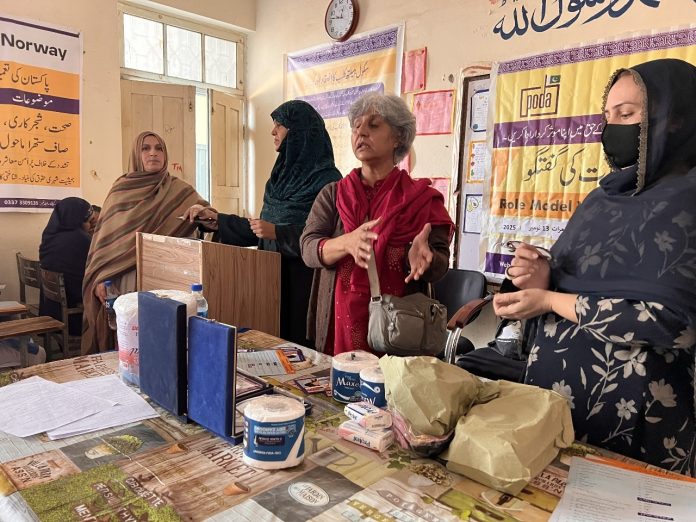DNA
ISLAMABAD: : Potohar Organization for Development Advocacy (PODA), in collaboration with the District Population Welfare Office, conducted activities focused on life-based skills education, including menstrual hygiene management, anemia, nutrition, a role model visit, and the establishment of a health club to promote health and hygiene at Government Girls High School Rajoa Sadaat, Union Council 21, Chiniot.
Around 90 students, four teachers, and women staff from the District Population Office attended the awareness session. The activity was part of the three-year project “Reduce Early Marriages to Enhance Gender Equality,” supported by the Norwegian Embassy in Islamabad, which will conclude by the end of this month.
PODA Project Manager, Nabeela Aslam, introduced PODA and the project while delivering an informative session on menstrual hygiene management, anemia, and nutrition. She explained the purpose and role of the health club in promoting healthy habits among students and encouraging peer learning. She emphasized that girls must maintain cleanliness and hygiene during menstruation, as their reproductive health – from adolescence to adulthood – requires proper care, hydration, and awareness to prevent infections and ensure long-term well-being.
District Population Officer, Sana Rehman, encouraged the students to live with purpose and focus, maintaining discipline and hard work to achieve their dreams and lead a dignified life. Sharing her personal journey, she motivated the girls not to give up on their education, reminding them that true strength and success come from learning and perseverance – not from wealth, beauty, or material possessions. She said education is the most valuable asset that enables women to shape their lives with confidence, independence, and respect.
Jabeen Akhter, the School Incharge, appreciated PODA and the district population office for their joint efforts to inspire girls toward highly rewarding futures and help them achieve their dreams. She emphasized that rural girls critically need these awareness sessions to gain insights from people who have already followed the path of hard work. Akhter believes that the accomplishments of these girls will ultimately change the rural practice of marrying off daughters at a young age.

















